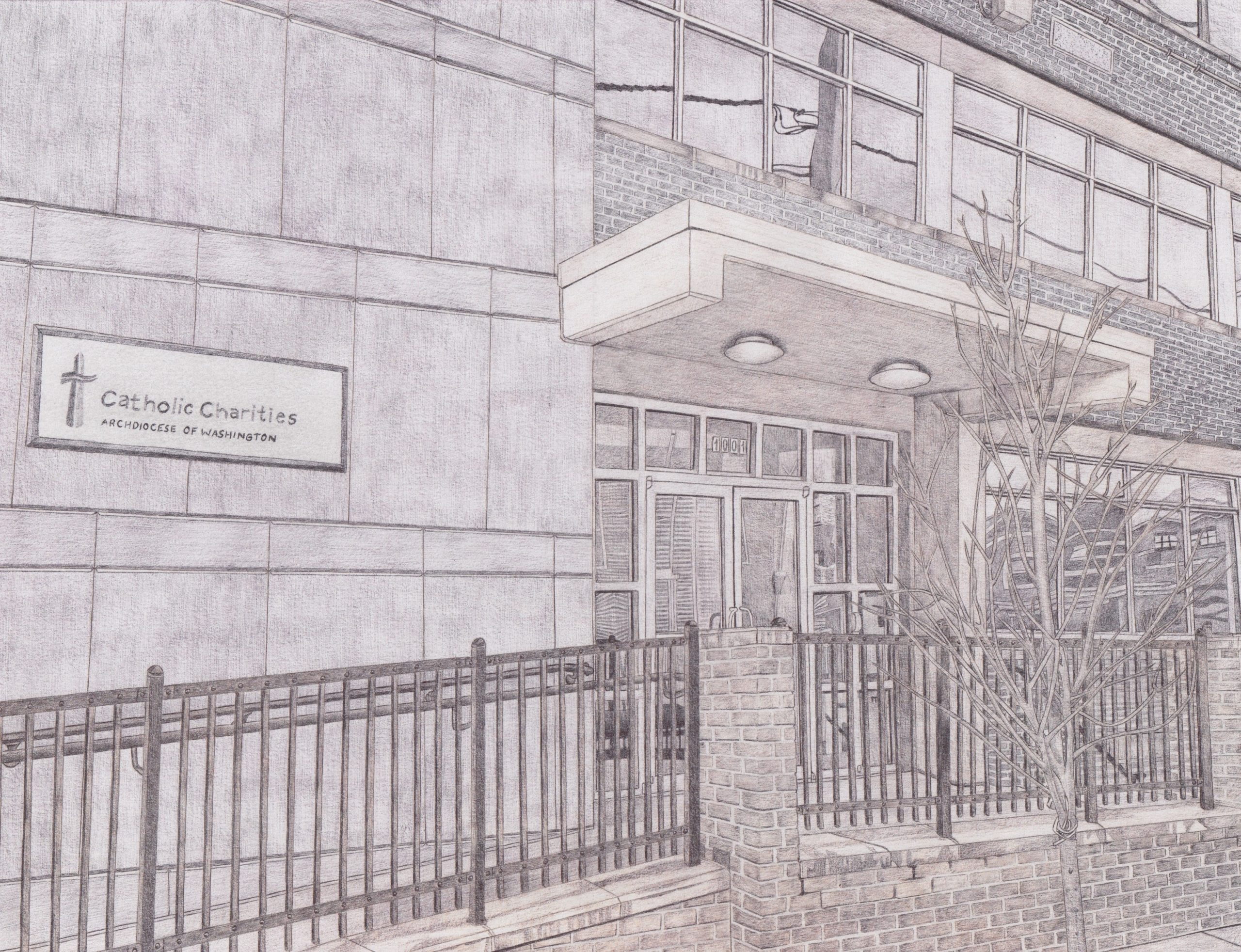
Catholic Charities’ Behavioral Health Services supports and empowers vulnerable adults struggling with mental illness, guiding them on their road to self-sufficiency. Conditions like substance abuse and bipolar disorder may not be obvious to some, but they present significant and unique barriers to success. If left untreated or unsupported, persistent mental health challenges can prevent people from securing employment or housing, perpetuating cycles of poverty.
One of these clients is Amr Fadl, who arrived in the United States in 2009 after leaving his native Sudan to continue his education and pursue a career in computer science. At age 24, he was trying to find his place in a new country, a search that took him to Detroit, Wichita and finally Washington, D.C. Though he was on his own, he had a constant companion that accompanied him on his journey: depression.
“It’s like a cloud that constantly follows me and doesn’t go away,” Fadl said.
He developed PTSD after experiencing trauma growing up in a country ravaged by war. Too afraid to talk about his pain, he fell into an endless cycle of depression and anxiety that impaired his day-to-day living. He experienced a variety of life-limiting symptoms, including the inability to focus, overwhelming feelings of despair, lack of energy and motivation, memory loss and procrastination, and he panicked easily – even over minor things.
After settling in D.C., he searched desperately for employment. But his negative mental state, exacerbated by an increased sense of loneliness, made it challenging to secure and keep a job.
“I thought everyone would want to avoid me because of my mental health and because I’m an immigrant,” Fadl said. “No one wanted to help.”
While he felt alone, he suffered from a common condition. According to DC Health Matters, a coalition of area hospitals and community health centers, 14.3 percent of D.C.’s population has been diagnosed with a depressive disorder. They also report that the number of cases is significantly higher in the city’s low-income neighborhoods, where up to 24 percent of adults report suffering from poor mental health. Providers say that many of their patients from these vulnerable areas experienced trauma from exposure to community violence. These mental health challenges can lead to serious issues to their overall health.
Asking for help is often difficult for people with mental health issues. But Fadl found the strength to take that courageous first step in early 2015 when he was referred to the Behavioral Health team at Catholic Charities DC’s Anchor Mental Health. The staff, comprised of licensed clinicians and other mental health specialists, meet clients like Fadl where they are, providing them with care tailored to their specific needs. They partner with clients to map out comprehensive care plans that include medication management, individual and group therapy, and other community support services.
For Fadl, the staff quickly assembled a care team, including a social worker and a psychiatrist, who worked to develop a full treatment plan. Six months into treatment, the team added an employment specialist through the supported employment program who offered specialized guidance to help relaunch his job search and prepare him for professional opportunities.
From connecting him to classes at the University of the District of Columbia to conducting mock interviews, the supported employment program didn’t just prepare Fadl to reenter the job market. It actually cared for his emotional state, he said.
Finally feeling empowered and more confident, he began taking on new challenges that he might have avoided in the depths of his depression. He taught himself important new technical skills in order to land his dream job, which was a huge breakthrough that directly challenged the symptoms of his depression.
Six months later, he landed that job, becoming a configuring engineer, working with developers to maintain digital infrastructure systems. While his mental health still affects him, he is excited about this job and is committed to succeeding. His employment specialist helps keep him grounded and reminds him to focus on the positives in his life.
Fadl said that he’s now a much better communicator after working with supported employment, and that he is able to think more clearly and strives to focus on the present.
When asked what advice he would offer others facing similar challenges, he said, “Be persistent. Be resilient. Focus on the end goal. It’s all in the brain.”
In line with the agency’s mission to preserve the dignity of all those in need, Catholic Charities welcomes thousands of behavioral health clients into a compassionate community that works to heal their minds, bodies and souls. In the last year alone, we provided these services to more than 1,000 adults. Staff members are committed to walking alongside these clients every step of the way, from diagnosis to recovery.
This commitment has not wavered, even during the pandemic. Staff have adjusted their services, moving some online, keeping clients connected and engaged to mitigate the effects of long-term isolation and reinforce their sense of community and connection. Others continue to go out into communities and serve on the front lines, going above and beyond the call of duty. From delivering groceries to securing housing, the behavioral health team is dedicated to doing whatever is necessary to ensure their clients are engaged and feel supported during this crisis.